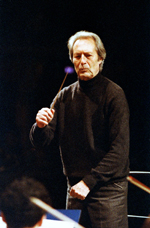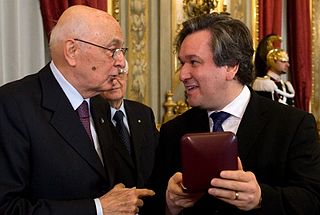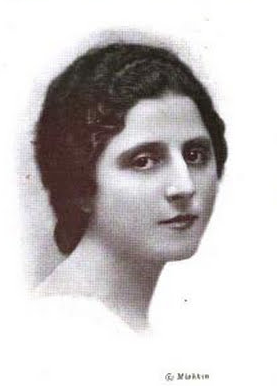Related Research Articles

Enrico Caruso was an Italian operatic first lyric tenor then dramatic tenor. He sang to great acclaim at the major opera houses of Europe and the Americas, appearing in a wide variety of roles that ranged from the lyric to the dramatic. Generally recognized as the first international recording star, Caruso made around 250 commercially released recordings from 1902 to 1920.

The New York Philharmonic is an American symphony orchestra based in New York City. Known officially as the Philharmonic-Symphony Society of New York, Inc., and globally known as the New York Philharmonic Orchestra (NYPO) or the New York Philharmonic-Symphony Orchestra, it is one of the leading American orchestras popularly called the "Big Five". The Philharmonic's home is David Geffen Hall, at New York's Lincoln Center for the Performing Arts.

Bruno Walter was a German-born conductor, pianist, and composer. Born in Berlin, he escaped Nazi Germany in 1933, was naturalised as a French citizen in 1938, and settled in the United States in 1939. He worked closely with Gustav Mahler, whose music he helped to establish in the repertory, held major positions with the Leipzig Gewandhaus Orchestra, New York Philharmonic, Concertgebouw Orchestra, Salzburg Festival, Vienna State Opera, Bavarian State Opera, Staatsoper Unter den Linden and Deutsche Oper Berlin, among others, made recordings of historical and artistic significance, and is widely considered to be one of the great conductors of the 20th century.

Arturo Toscanini was an Italian conductor. He was one of the most acclaimed and influential musicians of the late 19th and early 20th century, renowned for his intensity, his perfectionism, his ear for orchestral detail and sonority, and his eidetic memory. He was at various times the music director of La Scala in Milan and the New York Philharmonic. Later in his career, he was appointed the first music director of the NBC Symphony Orchestra (1937–1954), and this led to his becoming a household name, especially in the United States, through his radio and television broadcasts and many recordings of the operatic and symphonic repertoire.

Sir Georg Solti was a Hungarian-British orchestral and operatic conductor, known for his appearances with opera companies in Munich, Frankfurt, and London, and as a long-serving music director of the Chicago Symphony Orchestra. Born in Budapest, he studied there with Béla Bartók, Leó Weiner, and Ernő Dohnányi. In the 1930s, he was a répétiteur at the Hungarian State Opera and worked at the Salzburg Festival for Arturo Toscanini. His career was interrupted by the rise of the Nazis' influence on Hungarian politics, and being of Jewish background, he fled the increasingly harsh Hungarian anti-Jewish laws in 1938. After conducting a season of Russian ballet in London at the Royal Opera House, he found refuge in Switzerland, where he remained during the Second World War. Prohibited from conducting there, he earned a living as a pianist.

Claudio Abbado was an Italian conductor who was one of the leading conductors of his generation. He served as music director of the La Scala opera house in Milan, principal conductor of the Berlin Philharmonic, principal conductor of the London Symphony Orchestra, principal guest conductor of the Chicago Symphony Orchestra, music director of the Vienna State Opera, founder and director of the Lucerne Festival Orchestra, founder and director of the Mahler Chamber Orchestra, founding artistic director of the Orchestra Mozart and music director of the European Union Youth Orchestra.

Carlo Maria Giulini was an Italian conductor. From the age of five, when he began to play the violin, Giulini's musical education was expanded when he began to study at Italy's foremost conservatory, the Conservatorio Santa Cecilia in Rome at the age of 16. Initially, he studied the viola and conducting; then, following an audition, he won a place in the Orchestra dell'Accademia Nazionale di Santa Cecilia.

Lorin Varencove Maazel was an American conductor, violinist and composer. He began conducting at the age of eight and by 1953 had decided to pursue a career in music. He had established a reputation in the concert halls of Europe by 1960 but, by comparison, his career in the U.S. progressed far more slowly. He served as music director of The Cleveland Orchestra, Orchestre National de France, Pittsburgh Symphony Orchestra, Bavarian Radio Symphony Orchestra, and the New York Philharmonic, among other posts. Maazel was well-regarded in baton technique and possessed a photographic memory for scores. Described as mercurial and forbidding in rehearsal, he mellowed in old age.
The Great Caruso is a 1951 biographical film produced by Metro-Goldwyn-Mayer and starring Mario Lanza as famous operatic tenor Enrico Caruso. The movie was directed by Richard Thorpe and produced by Joe Pasternak with Jesse L. Lasky as associate producer. The screenplay, by Sonya Levien and William Ludwig, was suggested by the biography Enrico Caruso His Life and Death by Dorothy Caruso, the tenor's widow. The original music was composed and arranged by Johnny Green and the cinematography by Joseph Ruttenberg. Costume design was by Helen Rose and Gile Steele.

The Israel Philharmonic Orchestra is a major Israeli symphony orchestra based in Tel Aviv. Its principal concert venue is Heichal HaTarbut.

Jan Peerce was an American operatic tenor. Peerce was an accomplished performer on the operatic and Broadway concert stages, in solo recitals, and as a recording artist. He is the father of film director Larry Peerce.

Artur Rodziński was a Polish-American conductor of orchestral music and opera. He began his career after World War I in Poland, where he was discovered by Leopold Stokowski, who invited him to be his assistant with the Philadelphia Orchestra. This engagement led to Rodziński becoming music director of the Los Angeles Philharmonic, Cleveland Orchestra, New York Philharmonic, and the Chicago Symphony Orchestra. He also prepared the NBC Symphony Orchestra for Arturo Toscanini before the Italian conductor's debut with them. A dispute in Chicago led to Rodziński's dismissal in 1948, whereupon he shifted his career to Europe, eventually settling in Italy, although continuing to maintain a home in Lake Placid, New York. In November 1958, beset by heart disease, he made his professional return to the United States for the first time in a decade, conducting acclaimed performances of Richard Wagner's Tristan und Isolde with the Lyric Opera of Chicago. Exhausted, he checked into Massachusetts General Hospital where he died 11 days later.

Sir Antonio Pappano is an English-Italian conductor and pianist. He is currently music director of the Royal Opera House and chief conductor of the London Symphony Orchestra.

Victor Alberto de Sabata was an Italian conductor and composer. He is widely recognized as one of the most distinguished operatic conductors of the twentieth century, especially for his Verdi, Puccini and Wagner.

János Ferencsik was a Hungarian conductor.
Josef Alexander Pasternack was a conductor and composer in the first half of the 20th century.

JoAnn Falletta is an American conductor.

Massimo Filippo Antongiulio Maria Freccia was an Italian American conductor. He had an international reputation but never held a post as music director of a major orchestra or opera house. Unusually for an Italian, he built his career around symphonic music rather than opera. For several years he was an assistant to Arturo Toscanini, whom he venerated, and he was regularly invited by Toscanini to conduct the NBC Symphony Orchestra.

Elena Bianchini-Cappelli was an Italian dramatic soprano opera singer.

Nina Morgana was an American soprano, a protégée of Enrico Caruso, who sang with the Metropolitan Opera for fifteen seasons, from 1920 to 1935. She was of Italian descent.
References
- ↑ "Bruno Zirato, orchestra official". The Record. New Jersey, Hackensack. Associated Press. November 30, 1972. p. 23. Retrieved October 4, 2023– via Newspapers.com.
- ↑ Rogers, W. G. (June 14, 1959). "Bruno Zirato, Maestros' Manager, Calls It Quits". The Hammond Times. Indiana, Munster. Associated Press. p. 61. Retrieved October 4, 2023– via Newspapers.com.
- 1 2 3 Briggs, John (May 3, 1959). "Case of Stranded Journalist: Deserted by Shipmate, Bruno Zirato Went On To Career in Music" . The New York Times. p. X 11. Retrieved October 2, 2023.
- 1 2 "Caruso's Secretary Weds Singer; Tenor Gives Money and Jewels". New York Herald. June 16, 1921. p. 11. Retrieved October 4, 2023– via Newspapers.com.
- 1 2 3 4 5 6 7 8 9 10 "Bruno Zirato, 88, Caruso Aide Who Headed Philharmonic, Dies" . The New York Times. November 30, 1972. p. 46. Retrieved October 2, 2023.
- ↑ "Caruso's Amanuensis: A Talent for Food" . The New York Times. September 28, 1967. p. 54. Retrieved October 4, 2023.
- ↑ "Salute Bruno Zirato". Fort Worth Star-Telegram. July 5, 1931. p. 24. Retrieved October 4, 2023– via Newspapers.com.
- ↑ "Bruno Zirato Tonight 'Toscanini': WIBA". The Capital Times. Wisconsin, Madison. April 8, 1964. Retrieved October 4, 2023– via Newspapers.com.
- ↑ "Bruno Zirato, 88, Philharmonic Director". The Reporter Dispatch. New York, White Plains. November 30, 1972. p. 5. Retrieved October 4, 2023– via Newspapers.com.